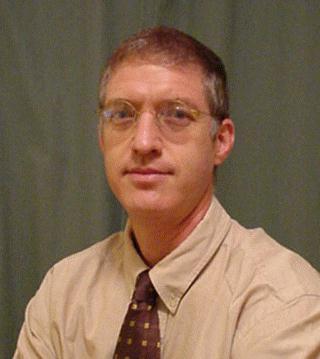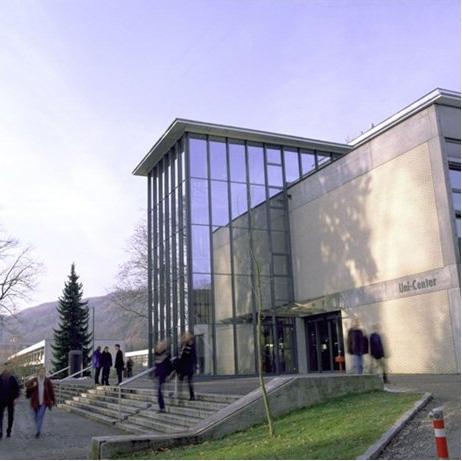|
19th IEEE |
|||||
|
Automated Software Engineering |
|||||
The ASE 2004 tutorials give attendees the opportunity to gain new insights, knowledge and skills on evolving and emerging research topics in the area of automated software engineering.
- T1: Supporting Automated Systems Development with Object-Process Methodology (Dov Dori)
- T2: Automated Software Engineering of Critical Systems Development with UML (Jan Jürjens)
- T3: Software Traceability (Andrea Zisman, George Spanoudakis)
- T4: Component-based Software Engineering for Embedded Systems (Ivica Crnkovic)
Tutorial Co-Chairs
| Paola Inverardi University of L'Aquila, Italy inverard@di.univaq.it |
Schahram Dustdar Vienna University of Technology dustdar@infosys.tuwien.ac.at |
Tutorial 1:
Dov Dori:
Supporting Automated Systems Development with Object-Process Methodology
Monday, September 20, 2004, 9:00-12:30
Hörsaal 15 / Managementzentrum
(building #16 on campus
map)
Object-Process Methodology (OPM) is a unifying approach for developing, communicating, supporting and evolving systems of various domains, types, magnitudes and complexities. OPM caters equally well to systems' structure (through objects and relations) and behavior (through processes that transform objects). OPM encompasses the entire lifecycle of a system or software product, from concept and initiation through development to deployment. It is founded on well-defined ontology with clear, formal, single-model semantics expressed bi-modally via graphics and natural language. These traits enable fast and reliable system development and evolution with automatic graphics-and-text documentation. OPM is comprehensible to domain experts who are not IT professionals and therefore they can actively engage in the evolution process as part of the development team. Taught at leading institutions of higher education and used in Industry, OPM has evolved as a significant extension of Object technology. With hundreds of thousands of OPCAT downloads (from www.ObjectProcess.org), OPM is rapidly gaining worldwide popularity as the method of choice for systems development. Continuing a series of successes in Chicago, Riga, and Angers (France), the tutorial will present the underlying principles and system development approach of OPM. Real-life examples, hands-on experience of OPCAT 2.6 (supplied), and focus on the smooth transitions between requirements, analysis, design, and implementation will be highlighted.
 Dov
Dori is Head of the Information Systems Engineering Area at the Faculty
of Industrial Engineering and Management, Technion, Israel Institute of Technology,
and Research Affiliate at MIT, Cambridge. MA. Between 1999-2001 he was Visiting
Faculty at MIT's Engineering Systems Division and Sloan School of Management.
Dov Dori received his B.Sc. in Industrial Engineering and Management from the
Technion in 1975, M.Sc. in Operations Research from Tel Aviv University in 1981,
and Ph.D. in Computer Science from Weizmann Institute of Science, Rehovot, Israel,
in 1988. Between 1978 and 1984 he was Chief Industrial Engineer of MERKAVA Tank
Production Plant and Head of an IDF computer unit. His research interests include
Systems Development Methodologies, Information Systems Engineering, Software
Engineering, and Document Analysis and Recognition. Dov Dori has developed Object-Process
Methodology (OPM), a comprehensive systems evolution paradigm presented in his
2002 book (by Springer). He won several awards for his research contributions,
including the Hershel Rich Technion Innovation Award for the development of
OPCAT-Object-Process CASE Tool, which supports OPM. Dov Dori is on the Editorial
Board of the International Journal of Web Engineering Technologies (IJWET) and
International Journal of Pattern Recognition and Artificial Intelligence (IJPRAI).
He was Associate Editor of IEEE Transaction on Pattern Analysis and Machine
Intelligence (T-PAMI) and International Journal of Document Analysis and Recognition
(IJDAR). Dov Dori is co-editor of three books, author of over 90 journal papers
and book chapters, and 70 conference publications. He is Fellow of the International
Association for Pattern Recognition (IAPR), Senior Member of IEEE, and Member
of IEEE Computer Society and ACM.
Dov
Dori is Head of the Information Systems Engineering Area at the Faculty
of Industrial Engineering and Management, Technion, Israel Institute of Technology,
and Research Affiliate at MIT, Cambridge. MA. Between 1999-2001 he was Visiting
Faculty at MIT's Engineering Systems Division and Sloan School of Management.
Dov Dori received his B.Sc. in Industrial Engineering and Management from the
Technion in 1975, M.Sc. in Operations Research from Tel Aviv University in 1981,
and Ph.D. in Computer Science from Weizmann Institute of Science, Rehovot, Israel,
in 1988. Between 1978 and 1984 he was Chief Industrial Engineer of MERKAVA Tank
Production Plant and Head of an IDF computer unit. His research interests include
Systems Development Methodologies, Information Systems Engineering, Software
Engineering, and Document Analysis and Recognition. Dov Dori has developed Object-Process
Methodology (OPM), a comprehensive systems evolution paradigm presented in his
2002 book (by Springer). He won several awards for his research contributions,
including the Hershel Rich Technion Innovation Award for the development of
OPCAT-Object-Process CASE Tool, which supports OPM. Dov Dori is on the Editorial
Board of the International Journal of Web Engineering Technologies (IJWET) and
International Journal of Pattern Recognition and Artificial Intelligence (IJPRAI).
He was Associate Editor of IEEE Transaction on Pattern Analysis and Machine
Intelligence (T-PAMI) and International Journal of Document Analysis and Recognition
(IJDAR). Dov Dori is co-editor of three books, author of over 90 journal papers
and book chapters, and 70 conference publications. He is Fellow of the International
Association for Pattern Recognition (IAPR), Senior Member of IEEE, and Member
of IEEE Computer Society and ACM.
Tutorial 2:
Jan Jürjens:
Automated Software Engineering of Critical Systems Development with UML
Monday, September 20, 2004, 14:00-17:30
Hörsaal 15 / Managementzentrum (building #16 on
campus map)
The high quality development of critical systems (be
it dependable, security-critical, real-time, or performance-critical systems)
is difficult. Many critical systems are developed, deployed, and used that do
not satisfy their criticality requirements, sometimes with spectacular failures.
UML offers an unprecedented opportunity for high-quality critical systems development
that is feasible in an industrial context. As the de-facto standard in industrial
modeling, a large number of developers is trained in UML. Compared to previous
notations with a user community of comparable size, UML is relatively precisely
defined. This tutorial will teach the participants firstly how to elicit requirements
for critical systems. It will describe a way to integrate them into specifications
written in UML, using scenarios and use cases. This allows a better treatment
of the interplay between non-functional and functional requirements in critical
systems development. An emphasis will then be put on the development of tool-support
for automated software engineering of critical systems using UML. This includes
issues on how to bind commercial UML CASE tools to powerful analysis engines.
The tutorial includes an interactive tool demo with advanced tool support for
UML. Topics include: UML basics
(including extension mechanisms, applications of UML to dependable and security-critical
systems, extensions of UML (UMLsec, UMLsafe, ...), modeling, synthesis, code
generation, testing, validation, and verification of critical systems using
UML.
 Jan
Jürjens leads the Competence Center for IT-security at the Software
& Systems Engineering chair at TU Munich (Germany). He is the author of a book
on Secure Systems Development with UML (Springer-Verlag, to be published in
2004) and about 30 papers in international refereed journals and conferences,
mostly on computer security and safety and software engineering, and has given
several invited talks at international conferences. He has created and lectured
a course on secure systems development at the University of Oxford and about
25 tutorials at international conferences. He is the initiator and current chair
of the working group on Formal Methods and Software Engineering for Safety and
Security (FoMSESS) within the German Society for Informatics (GI). He is a member
of the executive board of the Division of Safety and Security within the GI,
the executive boad of the committee on Modeling of the GI, the advisory board
of the Bavarian Competence Center for Safety and Security, the working group
on e-Security of the Bavarian regional government, and the IFIP Working Group
1.7 "Theoretical Foundations of Security Analysis and Design". He has been leading
various security-related projects with industry and has acted as a reviewer
for EU research projects. Jan Jürjens holds an M.Sc. in Mathematics from the
University of Bremen and a DPhil (Doctor of Philosophy) in Computing from the
Univ. of Oxford. Previous stations of his academic career also include Univ.
of Cambridge (GB), Univ. of Edinburgh (GB), and Bell Laboratories (Palo Alto,
USA).
Jan
Jürjens leads the Competence Center for IT-security at the Software
& Systems Engineering chair at TU Munich (Germany). He is the author of a book
on Secure Systems Development with UML (Springer-Verlag, to be published in
2004) and about 30 papers in international refereed journals and conferences,
mostly on computer security and safety and software engineering, and has given
several invited talks at international conferences. He has created and lectured
a course on secure systems development at the University of Oxford and about
25 tutorials at international conferences. He is the initiator and current chair
of the working group on Formal Methods and Software Engineering for Safety and
Security (FoMSESS) within the German Society for Informatics (GI). He is a member
of the executive board of the Division of Safety and Security within the GI,
the executive boad of the committee on Modeling of the GI, the advisory board
of the Bavarian Competence Center for Safety and Security, the working group
on e-Security of the Bavarian regional government, and the IFIP Working Group
1.7 "Theoretical Foundations of Security Analysis and Design". He has been leading
various security-related projects with industry and has acted as a reviewer
for EU research projects. Jan Jürjens holds an M.Sc. in Mathematics from the
University of Bremen and a DPhil (Doctor of Philosophy) in Computing from the
Univ. of Oxford. Previous stations of his academic career also include Univ.
of Cambridge (GB), Univ. of Edinburgh (GB), and Bell Laboratories (Palo Alto,
USA).
Tutorial 3:
Andrea Zisman and George Spanoudakis:
Software Traceability
Tuesday,
September 21, 2004, 9:00-12:30
Hörsaal 15 / Managementzentrum (building #16 on
campus map)
Software traceability - that is the ability to relate artefacts which are created during the development of a software system (e.g., requirements, design and code artefacts) with each other, the stakeholders that created them, and/or the rationale underpinning their exact form - has been recognised as a significant capability in the software development and maintenance process, and as an important factor for the quality of the final product. Traceability information can be used to support the analysis of the implications and integration of changes requested in the system development process; the maintenance and evolution of software systems and documentation; the reuse of software systems and their components; and the inspection and testing of software systems. The software and system engineering communities have long standing interests in the area of traceability and have developed numerous approaches and techniques to establish and maintain traceability. More specifically, research in this area has been mainly concerned with the study and definition of different types of traceability relations; the generation of these relations; the development of architectures, tools, and environments for managing traceability information; and the empirical investigation of organisational practices regarding the establishment and deployment of traceability information in the software development life cycle. In this tutorial, we present an overview of the state of the art and practice in software traceability, discuss the main scientific and technological advances in this area, present the available technologies and their contributions, and identify issues that require further research in the field. The tutorial is intended for practitioners, managers, researchers, and teachers with interests in software development and the management of software systems and development processes. The tutorial may also be attended by students that follow a university programme in computing at all levels.
 Andrea
Zisman is a senior lecturer in the Department of Computing of City University,
London. She holds a PhD degree in Computer Science, a MSc degree in Applied
Mathematics to Computer Science, and a B.Sc degree in Computer Science. Prior
to this position she was a research fellow at the Department of Computer Science
at University College London, UK and has worked as a software system consultant,
developer and analyst. Andrea was a visiting researcher at AT&T Labs Research,
USA (2003). Andrea has been research-active in the areas of automated software
engineering and management of distributed data where she has published extensively.
Her research has been concerned with traceability and consistency management
of software artefacts, validation of distributed systems, interoperability of
distributed data sources, and XML and web services applications. Andrea has
served in the organising and program committees of various international conferences
and workshops, has acted as a reviewer for international journals, and has given
tutorials in various international conferences. She has organised two international
workshops in the area of traceability (TEFSE'2002 and TEFSE'2003) and is co-editing
a special issue of the International Journal in Software Engineering and Knowledge
Engineering in software traceability.
Andrea
Zisman is a senior lecturer in the Department of Computing of City University,
London. She holds a PhD degree in Computer Science, a MSc degree in Applied
Mathematics to Computer Science, and a B.Sc degree in Computer Science. Prior
to this position she was a research fellow at the Department of Computer Science
at University College London, UK and has worked as a software system consultant,
developer and analyst. Andrea was a visiting researcher at AT&T Labs Research,
USA (2003). Andrea has been research-active in the areas of automated software
engineering and management of distributed data where she has published extensively.
Her research has been concerned with traceability and consistency management
of software artefacts, validation of distributed systems, interoperability of
distributed data sources, and XML and web services applications. Andrea has
served in the organising and program committees of various international conferences
and workshops, has acted as a reviewer for international journals, and has given
tutorials in various international conferences. She has organised two international
workshops in the area of traceability (TEFSE'2002 and TEFSE'2003) and is co-editing
a special issue of the International Journal in Software Engineering and Knowledge
Engineering in software traceability.
 George
Spanoudakis is a senior lecturer in the Department of Computing of The
City University in London, deputy head of this department and senior tutor for
research in it. He holds BSc, MSc and PhD degrees in Computer Science and has
been a visiting associate professor in the Department of Computer Science of
the University of Crete (2000) and visiting lecturer in the Department of Information
Systems of the London School of Economics (2000). George has served in the program
committees of numerous international conferences and workshops in the field
of software engineering and has acted as a reviewer for international scientific
journals including the IEEE Transactions on Software Engineering and ACM Transactions
on Software Engineering and Methodology. Recently, George has organised two
international workshops in the area of traceability (in conjunction with ASE
'02 and ASE '03) and he is currently editing a special issue of the International
Journal in Software Engineering and Knowledge Engineering in software traceability.
His research in the area of software engineering is related to multi-perspective
software modelling, managing inconsistencies in software models, software traceability
and measurement, and software reuse. George has over 45 publications in these
areas.
George
Spanoudakis is a senior lecturer in the Department of Computing of The
City University in London, deputy head of this department and senior tutor for
research in it. He holds BSc, MSc and PhD degrees in Computer Science and has
been a visiting associate professor in the Department of Computer Science of
the University of Crete (2000) and visiting lecturer in the Department of Information
Systems of the London School of Economics (2000). George has served in the program
committees of numerous international conferences and workshops in the field
of software engineering and has acted as a reviewer for international scientific
journals including the IEEE Transactions on Software Engineering and ACM Transactions
on Software Engineering and Methodology. Recently, George has organised two
international workshops in the area of traceability (in conjunction with ASE
'02 and ASE '03) and he is currently editing a special issue of the International
Journal in Software Engineering and Knowledge Engineering in software traceability.
His research in the area of software engineering is related to multi-perspective
software modelling, managing inconsistencies in software models, software traceability
and measurement, and software reuse. George has over 45 publications in these
areas.
Tutorial 4:
Ivica Crnkovic:
Component-based Software Engineering for Embedded Systems
Tuesday,
September 21, 2004, 14:00-17:30
Hörsaal 15 / Managementzentrum
(building #16 on campus
map)
Component-based development (CBD) is of great interest to the software engineering
community and has achieved considerable success in many engineering domains.
CBD, has been extensively used for several years in desktop environments, office
applications, e-business and in general in Internet- and web-based distributed
applications. In many other domains, for example embedded and real-time systems,
CBD is utilized to a lesser degree. The latest trends show that different component
technologies are being developed for different domains. Similarly to object-oriented
paradigm that is exploited in different OO languages, a component-based paradigm
based on certain common principles is slowly built and used in different component
technologies.
The aim of this tutorial is give an overview of basic principles of component-based software engineering that are embodied in different component technologies. Firstly these principles are presented and illustrated in widely used component models. The advantages, the disadvantages and challenges of component-based approach are discussed. Secondly the tutorial presents characteristics of embedded systems, and their requirements and constraints that have implications on component models. Further the basic characteristics of component models for embedded systems are presented and illustrated by some existing technologies. Finally an overview of research and implementation challenges and trends of component-based development in embedded systems are elaborated.
 Ivica
Crnkovic is a professor of industrial software engineering at Mälardalen
University, Sweden, where he is the chair of the Software Engineering Laboratory
and the scientific leader of the industrial software engineering research. His
research interests include component-based software engineering, software configuration
management, software development environments and tools, and software engineering
in general. Prof. Crnkovic is the author of more than 50 refereed articles and
papers on software engineering topics and a co-author and co-editor of two books:
"Building Reliable Component-Based Systems", and "Implementing and integrating
Product Data Management And Software Configuration Management". He has been
co-program chair and co-organized several workshops and conferences related
to software engineering (in particularly component-based software engineering)
such as CBSE 2004 symposium, CBSE3-CBSE6 workshops at ICSE conference, Euromicro
conference CBSE tracks 2000-2004, etc. Prof. Ivica Crnkovic is holding several
undergraduate and graduate courses in software engineering and component-based
software engineering. From 1985 to 1998, Professor Crnkovic worked at ABB in
Sweden, where he was responsible for software development environments and tools.
Prof. Crnkovic received a M.Sc. in electrical engineering in 1979, a M.Sc. in
theoretical physics in 1984, and a Ph.D. in computer science in 1991, all from
the University of Zagreb, Croatia.
Ivica
Crnkovic is a professor of industrial software engineering at Mälardalen
University, Sweden, where he is the chair of the Software Engineering Laboratory
and the scientific leader of the industrial software engineering research. His
research interests include component-based software engineering, software configuration
management, software development environments and tools, and software engineering
in general. Prof. Crnkovic is the author of more than 50 refereed articles and
papers on software engineering topics and a co-author and co-editor of two books:
"Building Reliable Component-Based Systems", and "Implementing and integrating
Product Data Management And Software Configuration Management". He has been
co-program chair and co-organized several workshops and conferences related
to software engineering (in particularly component-based software engineering)
such as CBSE 2004 symposium, CBSE3-CBSE6 workshops at ICSE conference, Euromicro
conference CBSE tracks 2000-2004, etc. Prof. Ivica Crnkovic is holding several
undergraduate and graduate courses in software engineering and component-based
software engineering. From 1985 to 1998, Professor Crnkovic worked at ABB in
Sweden, where he was responsible for software development environments and tools.
Prof. Crnkovic received a M.Sc. in electrical engineering in 1979, a M.Sc. in
theoretical physics in 1984, and a Ph.D. in computer science in 1991, all from
the University of Zagreb, Croatia.



